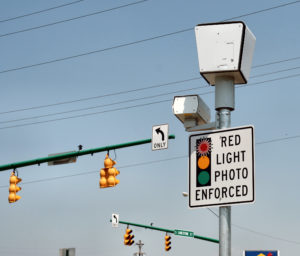Though some consumer safety groups have declared victory given the recent decision by Chrysler to recall millions of Jeeps, others argue the celebration might be short-lived. Some have said that the episode may mark a new era of increasingly hostile responses by automakers in the face of a recall order from the National Highway Traffic Safety Administration.
One expert, the director of the Center for Auto Safety, says that episode will likely act as a catalyst for other car companies to dig in their heels when dealing with the NHTSA. Chrysler’s initial flat refusal to recall its Jeeps Grand Cherokees and Jeep Libertys was a slap in the face to the NHTSA and gave the car company significant leverage in its future dealings with the agency.
Prior to the Chrysler episode, it was seen as standard practice for car companies to say that they are fully cooperating with the NHTSA regarding recalls. Chrysler flipped the script and not only refused to recall its vehicles initially, but issued a lengthy white paper detailing why the government’s conclusions were wrong.
Industry experts say that while Chrysler caved eventually, its tactics worked and will likely save the company tens of millions of dollars. After two weeks of refusing to do anything, the car make mollified the NHTSA by agreeing to recall 1.56 million Jeep Grand Cherokees made between 1993 and 1998 and Jeep Libertys made between 2002 and 2007. While this might seem like a lot, it’s actually substantially less than the 2.7 million Jeeps that the NHTSA wanted the company to recall.
An analyst for Kelley Blue Book says the episode likely taught other car companies that by taking a tough negotiating position with the NHTSA they could negotiate a recall that is better for them in the end. Chrysler also was able to get the NHTSA to agree that the company did not have to refer to the recalled vehicles as “defective”, a technicality that some think might help in the event of product liability lawsuits.
Finally, the recall method itself will also likely work in Chrysler’s favor. The company agreed to solve the problem of vulnerable gas tanks by installing a Chrysler-made trailer hitch or ensuring that another suitable accessory hitch was already on the Jeeps, something that many of the recalled vehicles already have. This means that the company will save millions of dollars by not having to do anything to fix those vehicles with existing hitches.
While it’s good news that Chrysler issued a recall at all, it’s unfortunate that the terms of the agreement were so lopsided in the car company’s favor. We can only hope that in the future this does not set a dangerous precedent for other automakers intent on saving money at the expense of consumer safety.
CA










One Comment
ben kelley
Those of us who have been involved for decades in regulatory and judicial struggles to achieve auto safety know the sad truth that this is not the first time DOT has caved in to an auto company resisting recall of a demonstrably hazardous vehicle, nor will it be the last. The GM C/K pickup truck's dangerous fuel tank design ended in a similar "compromise," to name just one example. Mr. Duffan's article is perceptive and on-point. When attorneys and jurors are informed about the regulatory mishandling of all too many auto defects, they are better equipped to understand who so many people are being wrongly injured by unsafe vehicles.
Comments for this article are closed.